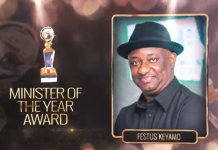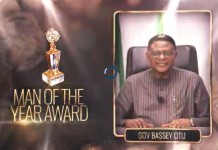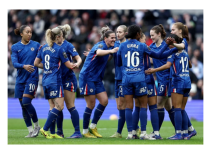In January 2025, a significant discourse emerged within Nigeria’s entertainment industry, centering on professional attire and personal expression.
Veteran Nollywood actress Ngozi Ezeonu publicly criticized two aspiring actresses for attending an audition without wearing bras, deeming their attire inappropriate. This incident sparked a debate, notably drawing a response from media personality Yeni Kuti, who challenged Ezeonu’s stance.
Ngozi Ezeonu’s Critique
During an audition in Lagos, Ngozi Ezeonu, serving as a judge, reprimanded two young women for their choice of attire, specifically forgoing bras. Expressing her disapproval, she stated, “Any day I’m on any audition table and anyone comes to me dressed like this, I will disqualify that person.” She questioned their intent, asking, “Who are you trying to impress?” and emphasized that such dressing contributes to the perception of actors as unserious individuals. Ezeonu highlighted that even in her youth, she maintained a different standard of dressing.
Yeni Kuti’s Response
In reaction to Ezeonu’s comments, Yeni Kuti, a renowned media personality, expressed a differing viewpoint. Speaking on TVC’s “Your View,” Kuti asserted that Ezeonu had no right to condemn the young women, suggesting that the actress herself might have exhibited similar indiscretions in her past. Kuti emphasized the importance of allowing individuals to make their own choices without undue criticism.
Industry and Public Reactions
The exchange between Ezeonu and Kuti ignited discussions within the entertainment industry and among the public. Some individuals supported Ezeonu’s call for maintaining certain standards of decency, especially in professional settings like auditions. They argued that appropriate attire reflects seriousness and respect for the craft. Conversely, others sided with Kuti, advocating for personal freedom and expression, and cautioning against imposing subjective standards of decency on others.
Broader Implications
This incident highlights the ongoing conversation about personal expression, societal norms, and professional expectations within the entertainment industry. It underscores the delicate balance between upholding certain standards and respecting individual choices. As the industry evolves, such discussions are crucial in shaping an environment that values both professionalism and personal freedom.
Conclusion
The debate between Ngozi Ezeonu and Yeni Kuti serves as a microcosm of larger societal discussions on dress codes, personal expression, and professional decorum. It reflects the dynamic nature of cultural norms and the importance of dialogue in navigating differing perspectives. As Nollywood continues to grow and influence, such conversations will play a pivotal role in defining its identity and values.
































